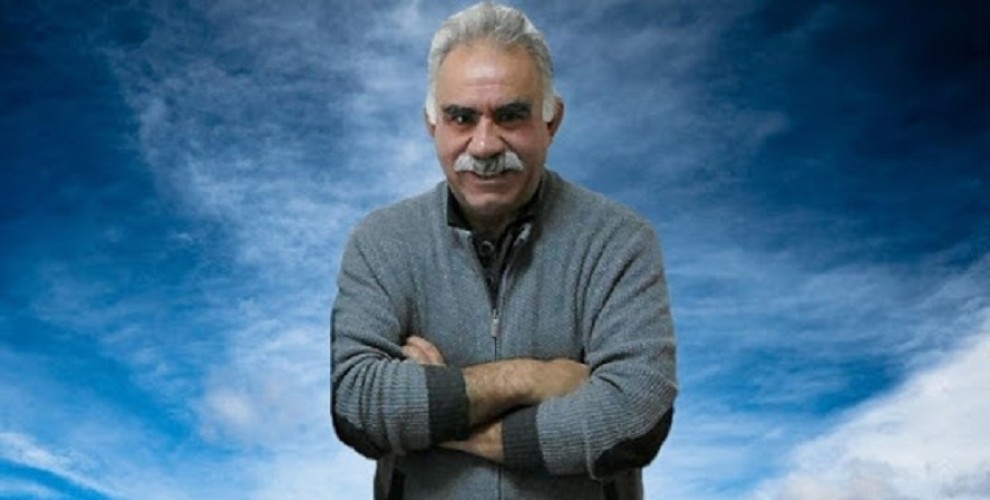The International Conspiracy in Öcalan's own words
On 9 October 1998, twenty years ago today, Kurdish People’s Leader, Abdullah Öcalan was forced to leave Syria following an international conspiracy woven by several nations.
On 9 October 1998, twenty years ago today, Kurdish People’s Leader, Abdullah Öcalan was forced to leave Syria following an international conspiracy woven by several nations.

Years after his forced departure from Syria and after having been captured (in February 1999) in Kenya and brought to Turkey, Öcalan wrote extensively about the international conspiracy in its Manifesto for a Democratic Civilisation.
Here is what he said about the international conspiracy and its consequences.
“It is important to discuss how and why I left Syria, as this started the chain of events that eventually led to my abduction. My departure from Syria resulted from the contradiction that arose yet again from the value I put on friendship and Israel’s Kurdish policies. After its founding, shortly after World Word II, Israel tried to patronage the Kurdish issue but was so sensitive that she had no tolerance for the alternative solution to the Kurdish issue proposed by our movement that became more influential. Our proposed alternative did not serve the interest of Israel. I should not, however, deny their efforts; MOSSAD did indirectly invite me to work with them on their own solution. But I was not open to, nor desired, this—neither politically nor morally.
On the other hand, the Syrian-Arab government never wished to surpass their tactical alliance with the PKK leadership. An alliance with the PKK had been part of Syria’s answer to the threats that had been coming from Turkey since 1958 and Turkey’s extreme pro-Israel tendencies. The PKK did not object to such a tactical relationship. (No one wanted to see that this relationship could lead to an alternative Kurdish policy; thus, the efforts of the Turkish administrations were ineffective.) But, seeing that Hafez al-Assad obtained the Syrian leadership due to the power struggle between the USA and the USSR, Syria was in no position to maintain any of its tactical alliances after the disintegration of the Soviet Union.
Even this short reminder shows that, although political pressure by the USA and military pressure by Turkey undoubtedly played a role, the real power that forced me out of Syria was Israel. It should not be forgotten that Israel and Turkey already had clandestine agreements in the 1950s, and with the second “anti-terror” agreement of 1996 the anti-PKK alliance between the USA, Israel and the Turkish Republic was complete.2
Another critical factor was the anti-PKK coalition which the Turkish Republic had entered into with the Patriotic Union of Kurdistan (PUK) and the Kurdish Democratic Party (KDP), both of whom already had relations with the USA and Israel; in other words, with the Kurdish Federal Assembly and its administration established in 1992.
The combination of all these adverse factors led me to leave Syria in 1998. Besides, I knew that it was time to leave. I had already been in Syria too long, lured by the political developments around Kurdistan and the friendship that I had hoped would result in strategic cooperation. I have to admit that high-ranking officials in the Syrian government had warned me about its disadvantages. Yet, I did not want to give up my belief in the power of friendship and cooperation between peoples. For the same reason I left Syria for Greece. I wanted to develop ties of friendship with the Greek people, to learn from its classical culture and its tragic history.
My only alternative was to go off into the mountains of Kurdistan. Two factors made me decide to not do this. First, my presence would attract massive military force. This would lead to serious damage to the civilians in the area and my comrades; it could also lead to the armed struggle becoming the exclusive means of obtaining a solution for the Kurdish question. Second, it was a pressing need to educate the youth joining our organization.
In short, the official and unofficial claims in Turkey of “we have him cornered” and “see the results we have obtained” do not altogether reflect reality. Notwithstanding this, Turkey is still trying to ensnare Iran and Iraq in the same way it did Syria. The outcome of Turkey’s alliance with Syria and Iran can also not be predicted. If the antagonisms between the USA, EU, Israel, Iran, Russia and China intensify, will the Turkish Republic be ready for the consequences?
My three-month peregrination between Athens, Moscow and Rome was not without value, though. This adventure led me to understand the essence of capitalist modernity— the basis on which this defense is built—despite its many masks and disguises. If not for this insight, I would either have been a primitive nationalist aspiring for a nation-state, or I would have ended up in a classical left-wing movement. Thus, my change in thought and policy can be ascribed to this forced adventure.
It has now become clear to me: The real power of capitalist modernity is not its money or its weapons; its real power lies in its ability to suffocate all utopias—including the socialist utopia which is the last and the most powerful of all—with its liberalism. Unless this power of liberalism is analyzed thoroughly, no ideology will escape being the humble servant of capitalism. There is hardly anyone who analyzed capitalism as comprehensively as Marx did, or focused on the state and revolution as much as Lenin did. However, it has become much clearer today that, despite claiming to be its negation, the Marxist-Leninist tradition’s contribution to capitalism in terms of material and meaning was significant”.